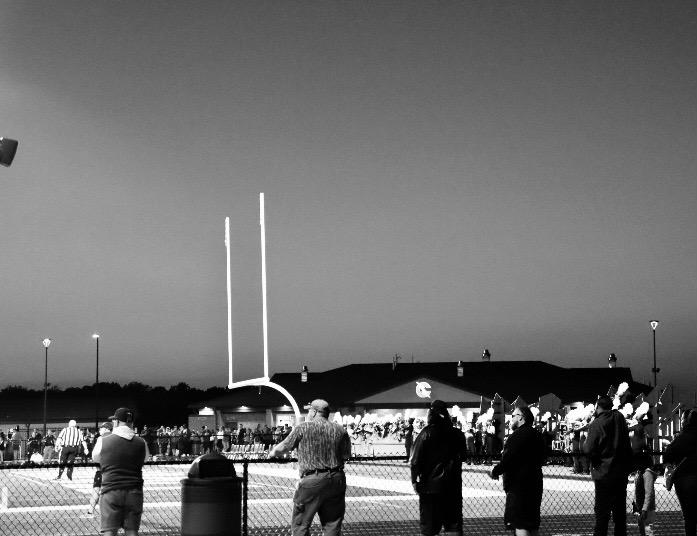What’s the Tea with “13 Reasons Why”
October 9, 2018
The hit TV series “13 Reasons Why” has been a common topic of debate among young adults since its release on March 31 of 2017, and its questionable graphic content has received a lot of negative backlash from parents, students, and even health care professionals. There are several sides to this heated controversy, so it can be confusing and even intimidating to start the show without a good, sensible grasp of what to expect.

Before anyone decides to start the series or not, a few students at Carroll wanted to share their thoughts on what a person would be getting into with the show, and why they liked or disliked watching it.
The first student to discuss the issue was senior Courtney Rhodes, who was excited and open to talk about her experience with the series and rated the show “10 out of 10, super scary accurate” for being in-depth to the psyche of the characters who had gone through traumatic situations such as described in the show. She also thought the show sent a necessary message– that parents need to be more understanding of their kids struggles in school and social life because you never know how serious their “high school” problems can be.
“Take your kids problems seriously, it’s not just asking to be noticed or get attention,” she says lastly.
Courtney was adamant that young adults watch “13 Reasons Why,” but they need to be aware that maturity is needed to handle the show’s dark and disturbing content.
However, another student had an entirely different perspective, claiming the show did not portray the characters’ thoughts and feelings correctly, and that “it glorifies suicide, portraying it as the only way out. [Giving] this idea that you cannot rely on your friends or parents because they wouldn’t get it” she stated. The student went on to explain that “13 Reasons Why” made it appear that mental illness is more a source of exaggerated drama than actual problems people face and need help with, with the support of their loved ones.
Though both contrasting opinions seem to be reasonable and supported, it was time to consider the professionals’ judgments. At the beginning of the show, some of the main characters explain to the viewers what the show is about and if it’s appropriate for certain viewers to watch due to its potentially upsetting and triggering content. They also provide a variety of sources for suicide prevention, but Jonathon Singer, who works with the American Association of Suicidology and a professor at the Loyola University Chicago School of Social Work, tells source SELF that “13 Reasons Why” had many opportunities within the series to give advice and information about suicide and sexual assault but chose to focus more on the characters and the story.
Singer went on to give an example with the first episode, an early scene in which a teacher begins a lecture to her class on suicide and how to look for the signs. Instead of letting the viewers hear the teacher, the screen focuses on Clay (one of the main characters) and fades out of the classroom to a flashback of Hannah (the girl who commits suicide), to push the story forward. This disappointed Singer; it gave the impression that “13 Reasons Why” was more concerned about its plot and drama than the message and revelation it was originally trying to portray to viewers.

Another source from SELF, John Ackerman, who is a coordinator at Nationwide Children’s Hospital Center for Suicide Prevention and Research, added that Hannah’s vengeful death was unfair and “[played] into a teen fantasy [that] promote[d] a misconception that suicidal behavior is selfish.” He went on to explain that dying for revenge is not something commonly seen in clinical studies of suicide victims. Does this misunderstanding provide some proof that “13 Reasons Why” is more hurtful than helpful when it comes to the exposure and discussion of suicide?
Now having a thorough understanding of people’s reactions and thoughts to the show, it will be easier to judge and confirm for oneself whether it’s appropriate or not to experience before being thrown into its intense story. Some say exposure to the show provides a catalyst for people to start opening up and discussing the tragedy of suicide, and helps enlighten parents who need to be more involved in their children’s lives and take their problems in school seriously whether it’s related to classwork or social life. Others claim the opposite, that “13 Reasons Why” doesn’t give the right kind of attention and message to these issues , because it pegs the character’s death as one of revenge and selfishness, which is upsetting to those who suffer from thoughts or situations such as Hannah’s. Mental health experts, as well as a student, claim the show didn’t provide good information regarding suicide prevention because “it’s focused more on the drama then actually getting help for thoughts like Hannah’s,” the teen states. Having all this information and points of view to consider, which side do you think you will choose if you decide to watch the series?



